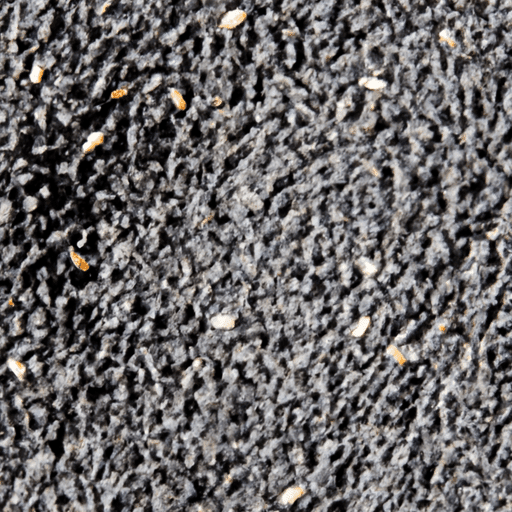Black Sesame Seeds: The Tiny Powerhouse of Flavor and Nutrition
When it comes to versatile ingredients that pack a punch both in terms of taste and nutrition, few can surpass the humble black sesame seed. These tiny seeds have been a staple in many cuisines for centuries, adding a distinct nutty flavor and a delightful crunch to various dishes. But there’s more to these seeds than meets the eye!
Taste and Culinary Uses
Black sesame seeds are prized for their rich, earthy flavor and delicate aroma. They have a slightly bitter taste, similar to that of regular sesame seeds, but with a deeper, more intense profile. This unique flavor makes them a valuable ingredient in both sweet and savory dishes.
In Asian cuisines, black sesame seeds are commonly used in desserts and baked goods. They are often ground into a fine powder and incorporated into dishes like black sesame mochi, tangyuan (glutinous rice balls), and black sesame ice cream. Their natural sweetness and bold flavor make them an ideal addition to these treats.
These versatile seeds also shine in savory dishes. Black sesame seeds can be used as a seasoning for stir-fries, sauces, and dressings, bringing a nutty and aromatic depth to the dish. They can also be toasted and sprinkled over salads, roasted vegetables, or even used as a coating for meat or fish.
Nutritional Powerhouse
Black sesame seeds aren’t just known for their culinary wonders; they are also packed with essential nutrients that make them a valuable addition to a balanced diet. Let’s take a closer look at their nutritional profile:
Protein: Black sesame seeds are an excellent source of plant-based protein, making them a great choice for vegetarian and vegan diets.
Healthy Fats: These seeds are rich in healthy fats, including polyunsaturated and monounsaturated fats, which can help improve heart health when consumed in moderation.
Fiber: Black sesame seeds are a good source of dietary fiber. Including them in your meals can promote healthy digestion and keep you feeling full and satisfied.
Vitamins and Minerals: These tiny seeds are packed with various vitamins and minerals, including calcium, iron, magnesium, and vitamin B6, which are all essential for maintaining good overall health.
History and Fun Facts
Black sesame seeds have a fascinating history that spans thousands of years. They originated in India, where they were highly regarded for their medicinal properties. Over time, their popularity spread to China and other parts of Asia, where they were incorporated into traditional cuisines and herbal medicine.
In Chinese culture, black sesame seeds are associated with vitality and longevity. They are often used in special dishes prepared for festive occasions and celebrations, symbolizing good fortune and happiness.
Interestingly, black sesame seeds have also found their way into the world of beauty and skincare. They are a common ingredient in many Asian beauty products, believed to nourish the skin and promote a healthy complexion.
In Summary
Black sesame seeds are more than just a garnish; they are a powerhouse of flavor and nutrition. Whether you’re sprinkling them over a salad, incorporating them into a dessert, or using them as a seasoning in a savory dish, these seeds bring a unique taste and a wealth of health benefits to your plate. So, go ahead and experiment with these versatile seeds, and unlock their full potential in your cooking repertoire!
Black Sesame Seeds
Origin: Black sesame seeds are believed to have originated in India and are one of the oldest known oilseed crops. They have been cultivated for over 5,000 years and are widely used in Asian cuisine, particularly in China, Japan, and Korea.
Common Uses: Black sesame seeds are used in both sweet and savory dishes. They are often sprinkled on sushi, buns, and breads to add flavor and texture. In Asia, they are also used to make dessert pastes, sauces, and dressings. In some Middle Eastern and Mediterranean cuisines, black sesame seeds are used in a spice blend called dukkah.
Nutritional Benefits: Black sesame seeds are highly nutritious and packed with essential minerals and vitamins. They are an excellent source of copper, manganese, calcium, iron, magnesium, and zinc. They also contain healthy fats, dietary fiber, and plant-based protein. Additionally, black sesame seeds are rich in antioxidants, particularly lignans, which have been associated with various health benefits.
Unique Properties: Black sesame seeds have a distinct nutty and slightly sweet flavor, which intensifies when roasted. They have a dark outer shell and a small, flat shape. When ground into a paste, they can produce a dark-colored oil called sesame oil, which is widely used for culinary and cosmetic purposes. The black color of the seeds is due to pigments called anthocyanins, which are also found in certain fruits and vegetables.
Historical Significance: In many Asian cultures, black sesame seeds hold symbolic and medicinal significance. In traditional Chinese medicine, they are believed to nourish the liver and kidneys, improve digestive function, and promote healthy hair and skin. Moreover, in some Asian folklore, black sesame seeds are associated with longevity and are considered a potent ingredient for promoting good health.




Use the share button below if you liked it.
It makes me smile, when I see it.